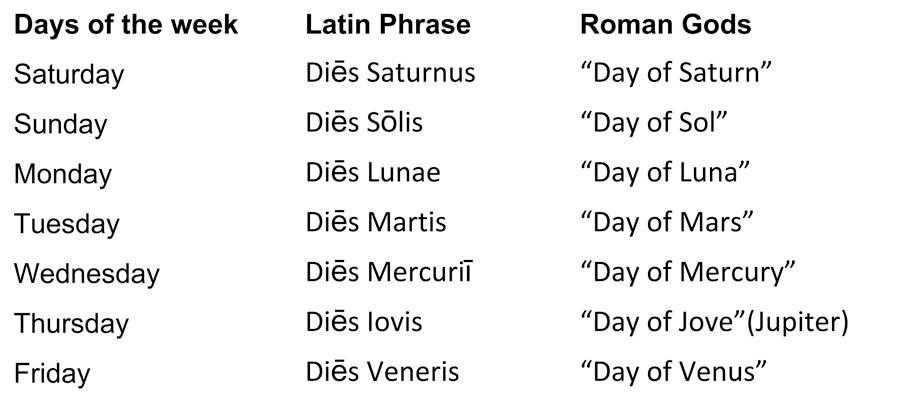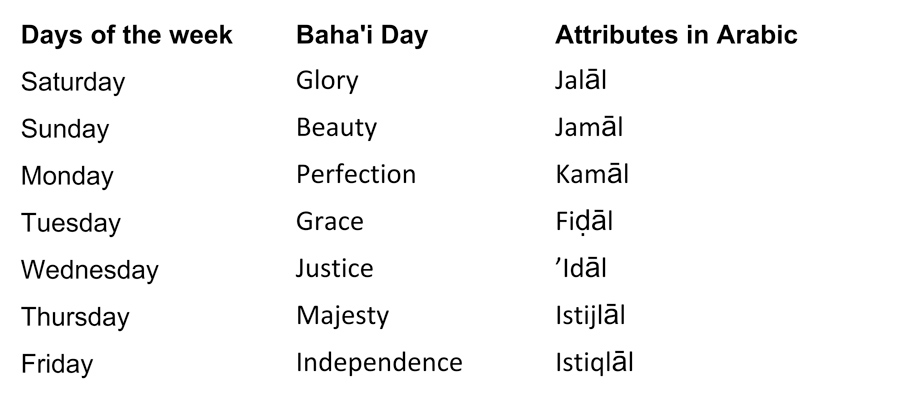The views expressed in our content reflect individual perspectives and do not represent the official views of the Baha'i Faith.
The Baha’i Calendar assigns spiritual names to each day of the nineteen-day month, and also to each day of the seven-day week. The days of each month are the same names as those of the Baha’i months, in fact, and are in the same order as well. This correspondence (or symmetry, if you will) makes it easier to remember days of the month within each month. So, on the first day of the first Baha’i month, it is the day of “Splendor” in the month of “Splendor.”

Pope Gregory XIII who introduced the Gregorian Calendar
In the previous articles in this series, we did not compare and contrast the names of the Baha’i months with the months of the Gregorian calendar, as there obviously is no numerical correspondence—the Baha’i calendar has 19 months, while the Gregorian has twelve. But we can compare the names of the Baha’i week with the traditional names of the week as used in the Gregorian calendar. The point of doing so will become perfectly clear.
The seven-day week originated in ancient Mesopotamia as a “planetary week.” In antiquity, there were thought to be seven planets, including the sun and moon, each of which circled the Earth, which was considered the center of the universe.
In ancient Egypt, each of the hours of the day was assigned to the “control” of their respective planets, from Saturn to the Moon, according to their supposed distance from the earth in the Ptolemaic system. In ancient Roman times, the days of the week were named after the planets, which, in turn, were named after various gods. The current names of our weekdays are mostly Germanic in origin, where, except for Sunday and Monday, the names of European gods were substituted for the Roman gods. We need not revisit those names, but will look to the Roman origins. The classical Latin names for the weekdays are as follows:

Now let’s look at the names of each day of the Baha’i week. The Baha’i week starts on Saturday, not Sunday. In the Baha’i Calendar, Friday is the day of rest, rather than Sunday. Starting with Saturday, here are the names of the week in the Baha’i Calendar:

See the difference? Rather than naming each day after what was originally a Roman god, the Baha’i calendar designates each day of the week after a spiritual attribute of God. This is part of the process of “transforming time” into a time for spiritual meditation.
You can immediately see that the first three days of the week—Glory, Beauty, Perfection—also double as names of Baha’i months. So let’s skip over those names for now, and look at Tuesday, which the Baha’i calendar names “Grace.” Here’s a standard definition of the Persian term for grace:
faẓl (v.n.), Remaining over and above, exceeding, being redundant; excelling; redundancy, excess; a remnant, remainder; excellence, virtue, accomplishment; learning, wisdom, science; a gift, present, favour, grace, bounty. – Francis Joseph Steingass, A Comprehensive Persian-English Dictionary, p. 932.
God bestows grace. Throughout the Baha’i writings, phrases like “grace and bounty” and “grace and favor” are quite common. The question here is this: How can we translate the godly attribute of “Grace” into a goodly action? Consider this passage:
O phoenix of that immortal flame kindled in the sacred Tree! Baha’u’llah … hath, during His last days on earth, given the most emphatic promise that, through the outpourings of the grace of God and the aid and assistance vouchsafed from His Kingdom on high, souls will arise and holy beings appear who, as stars, would adorn the firmament of divine guidance; illumine the dayspring of loving-kindness and bounty; manifest the signs of the unity of God; shine with the light of sanctity and purity; receive their full measure of divine inspiration; raise high the sacred torch of faith; stand firm as the rock and immoveable as the mountain; and grow to become luminaries in the heavens of His Revelation, mighty channels of His grace, means for the bestowal of God’s bountiful care, heralds calling forth the name of the One true God, and establishers of the world’s supreme foundation. … The gentle breezes wafted from the garden of their hearts shall perfume and revive the souls of men, and the revelations of their minds, even as showers, will reinvigorate the peoples and nations of the world. – Abdu’l-Baha, Selections from the Writings of Abdu’l-Baha, pp. 251–252.
Here, “mighty channels of His grace” provides a great insight: in order to manifest any attribute of God, one must find a way to “channel” or exemplify that particular virtue. In this way, each of us can instrumentally serve as the conduits by which divine grace, in whatever forms it may take, flows from our actions for the benefit of others:
O ye lovers of God! Be kind to all peoples; care for every person; do all ye can to purify the hearts and minds of men; strive ye to gladden every soul. To every meadow be a shower of grace, to every tree the water of life; be as sweet musk to the sense of humankind, and to the ailing be a fresh, restoring breeze. Be pleasing waters to all those who thirst, a careful guide to all who have lost their way; be father and mother to the orphan, be loving sons and daughters to the old, be an abundant treasure to the poor. – Ibid., pp. 244–245.
All these metaphors are not simply poetic—they refer to ethical actions and social uplift:
The beloved of the Lord, with their musk-scented breath, burn like bright candles in every clime, and the friends of the All-Merciful, even as unfolding flowers, can be found in all regions. … In the meadows of truth they are as sweet-singing nightingales, and in the flower-garden of guidance they are even as brightly-coloured blossoms. With mystic flowers they adorn the walks of the Garden of Reality; as swaying cypresses they line the riverbanks of the Divine Will. Above the horizon of being they shine as radiant stars; in the firmament of the world they gleam as resplendent orbs. Manifestations of celestial grace are they, and daysprings of the light of divine assistance. – Ibid., pp. 312–313.
In other words, if we strive to emulate the attributes of God, we can become “the embodiments of His own excelling grace,” “manifestations of celestial grace,” “mighty channels of His grace,” and, each and all, serve as “a shower of grace” in the world today.

















Comments
Sign in or create an account
Continue with Facebookor